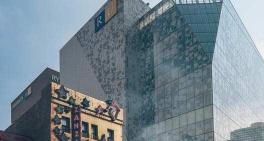'Hotel Rwanda' hero charged with terrorism in Rwanda court
National Court News
A Rwandan court on Monday charged Paul Rusesabagina, whose story inspired the film “Hotel Rwanda,” with terrorism, complicity in murder, and forming an armed rebel group.
Rusesabagina declined to respond to all 13 charges, saying some did not qualify as criminal offenses and saying that he denied the accusations when he was questioned by Rwandan investigators.
Rusesabagina, 66, asked to be released on bail, citing poor health that has caused him to be taken to hospital three times in the time that he has been held in Rwanda.
“I request that I am given bail and I assure the court that I will not flee from justice,” Rusesabagina said. The court said it will rule on his bail application on Thursday.
Rusesabagina was represented by Rwandan lawyers David Rugaza and Ameline Nyembo, who have been discounted as state-imposed representation by his family outside Rwanda.
Neither his lawyers nor the prosecution explained the circumstances under which Rusesabagina arrived in Kigali at the end of August from Dubai. He had traveled from the U.S. to Dubai and then mysteriously appeared in Rwanda. The Rwandan court said the suspect was arrested at Kigali International Airport, contradicting the earlier police version that he was arrested through “international cooperation.”
When Rwandan President Paul Kagame spoke on national broadcasting about the case, he indicated that Rusesabagina may have been tricked i nto boarding a private plane in Dubai that took him to Rwanda.
Amnesty International on Monday urged Rwandan authorities to guarantee Rusesabagina his right to a fair trial.
Related listings
-
Court denies AG's bid to halt initiative signature gathering
National Court News 07/24/2020Those backing a plan to put an independent commission in charge of Oregon’s redistricting process will get additional time to gather signatures and a lower threshold to qualify their initiative for the November ballot because of the pandemic, t...
-
The Supreme Court's future hinges on the 2020 election
National Court News 07/16/2020The blockbuster Supreme Court term that just ended was a (nearly) unmitigated disaster for movement conservatives. Chief Justice John Roberts declined to overturn precedent on abortion rights. Conservative activist Justice Neil Gorsuch showed he woul...
-
Ginsburg, from hospital, joins in on 'Obamacare' arguments
National Court News 05/06/2020The Supreme Court heard arguments Wednesday in a dispute involving Trump administration rules that would allow more employers who cite a religious or moral objection to opt out of providing no-cost birth control to women.With arguments conducted by t...

Nicholas C. Minshew - Minshew & Ahluwalia LLP
Nicholas C. Minshew, Attorney at Law, concentrates his practice in the area of Family Law including divorce, separation, child support, child custody, alimony, division of property, separation agreements, domestic violence, prenuptial agreements, and child support enforcement & modification. Mr. Minshew provides legal services to clients in Washington, D.C., and throughout Maryland, including Montgomery County, Frederick County, and Prince George’s County. Mr. Minshew obtained his Juris Doctorate degree from the American University, Washington College of Law in 2000, where he worked as an editor for the Administrative Law Review. After receiving his law degree, Mr. Minshew worked as an attorney for the global law firm of Morgan, Lewis & Bockius LLP, and for Leonard Street & Deinard LLP representing companies in Federal proceedings. During that time, Mr. Minshew redirected his focus to provide legal services directly to individuals and families.




